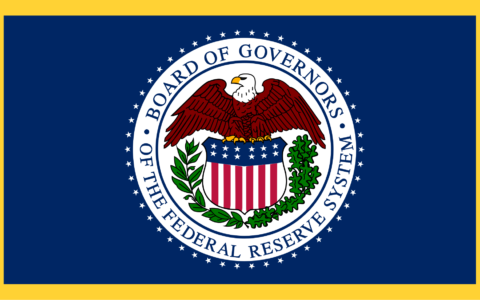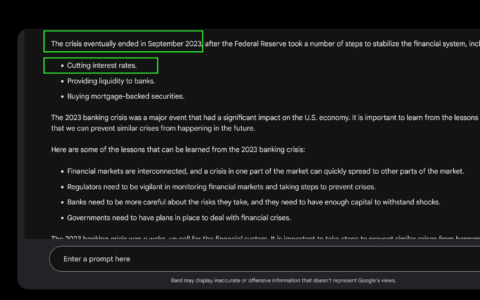
The banking system is the backbone of any economy, facilitating financial transactions and providing credit to individuals and businesses alike. However, when a banking crisis occurs, it can have far-reaching effects beyond just the banking sector. One area that is particularly vulnerable is the investment market, which is closely linked to the health of the banking system. In this article, we will explore the ripple effect of a banking crisis on the investment market and the potential damage it could cause to the broader economy.
Introduction: What is the Banking System?
The banking system refers to the network of institutions, organizations, and regulatory bodies that work together to facilitate the circulation and management of money in an economy. The system includes commercial banks, central banks, credit unions, and other financial institutions that offer a range of financial services to individuals, businesses, and governments.
The primary function of the banking system is to provide a safe and secure platform for depositors to store their money and access credit. Banks accept deposits from customers and use those funds to make loans to other customers, earning profits from the interest charged on those loans. In addition to lending and deposit-taking, banks also provide services such as foreign currency exchange, investment management, and financial advisory services.
Central banks play a critical role in the banking system by regulating the money supply, setting interest rates, and ensuring the stability of the financial system. The banking system is a crucial component of any modern economy, facilitating trade and commerce, promoting economic growth, and providing financial stability.
How Does the Banking System Affect the Economy?
The banking system has a significant impact on the economy in several ways:
- Facilitating transactions: Banks act as intermediaries in the economy, allowing individuals and businesses to make transactions more efficiently. They provide services such as electronic fund transfers, credit and debit card transactions, and online payments that make it easier to buy and sell goods and services.
- Providing credit: Banks play a crucial role in providing credit to individuals and businesses. They lend money to borrowers who need funds for investments, such as starting a business or buying a home. This credit helps to stimulate economic growth and create jobs.
- Creating money: Banks create money through the process of fractional reserve banking, which involves holding a fraction of deposits as reserves and lending out the remainder. By creating credit and expanding the money supply, banks can stimulate economic activity.
- Managing risk: Banks manage risk by diversifying their portfolios and ensuring that they have sufficient capital to absorb losses. This helps to prevent financial crises and maintain stability in the financial system.
- Regulating the economy: Central banks play a critical role in regulating the economy by setting interest rates, controlling the money supply, and providing liquidity to the financial system. These actions can help to stabilize the economy during times of recession or inflation.
Overall, the banking system plays a crucial role in the economy by facilitating transactions, providing credit, creating money, managing risk, and regulating the economy.
What Would Happen if the Banking System Experiences a Crisis?
If the banking system experiences a crisis, it can have severe consequences for the economy and individuals. Here are some of the potential outcomes:
- Bank runs: If people lose confidence in the banking system, they may rush to withdraw their money from banks. This can lead to a bank run, where the banks may not have enough cash on hand to meet the withdrawal demands, leading to bank failures.
- Economic recession: Banks play a crucial role in the economy by lending money to businesses and individuals. If the banking system experiences a crisis, it can lead to a credit crunch, where banks are unwilling to lend money. This can lead to a decrease in spending, a slowdown in the economy, and a recession.
- Government intervention: Governments may intervene to prevent the collapse of the banking system. This can include measures such as bailouts, where the government injects money into the banks to prevent them from failing, or nationalization, where the government takes control of the banks.
- Loss of savings: If a bank fails, depositors may lose their savings, especially if the bank is not insured by the government. This can have devastating consequences for individuals who rely on their savings for retirement or emergencies.
- Confidence crisis: A banking crisis can erode confidence in the financial system, leading to a broader crisis of confidence in the economy. This can cause a decline in consumer and business confidence, leading to a further slowdown in economic activity.
In conclusion, a banking crisis can have significant consequences for the economy and individuals, which is why it is essential for regulators to monitor the banking system closely and take preventive measures to prevent such crises from occurring.
The Impact of a Broken Banking System on Investment Markets
A broken banking system can have a significant impact on investment markets. Here are some potential effects:
- Decrease in investment: A banking crisis can lead to a decrease in investment activity as investors become more risk-averse. With banks unwilling to lend money, businesses may find it difficult to secure financing, and investment activity may decline.
- Stock market volatility: The stock market is closely linked to the banking system, and a crisis in the banking sector can lead to volatility in the stock market. As investors become more cautious, stock prices may fall, leading to losses for investors.
- Increase in risk premiums: A banking crisis can lead to an increase in risk premiums, which are the additional returns investors demand for investing in riskier assets. As investors become more cautious, they may demand higher returns to compensate for the increased risk.
- Flight to safety: During a banking crisis, investors may flee to safer assets such as government bonds or gold, causing a decrease in demand for riskier assets.
- Credit rating downgrades: A banking crisis can lead to credit rating downgrades for banks and other financial institutions. This can make it more difficult for these institutions to borrow money, leading to further financial instability.
- Investor confidence: A banking crisis can erode investor confidence, leading to a decline in overall investment activity. Investors may become more cautious and less willing to take risks, leading to a decline in economic activity.
In conclusion, a broken banking system can have significant consequences for investment markets. It is essential for regulators to monitor the banking system closely and take preventive measures to prevent such crises from occurring to maintain investor confidence and financial stability.
The Consequences for Businesses & Consumers
A broken banking system can have severe consequences for businesses and consumers. Here are some potential effects:
- Limited access to credit: Businesses and consumers may find it difficult to access credit during a banking crisis, as banks become more risk-averse and unwilling to lend money. This can hinder investment and lead to a decrease in economic activity.
- Increased cost of borrowing: If credit is available during a banking crisis, it may come at a higher cost due to an increase in risk premiums. This can make it more expensive for businesses and consumers to borrow money, leading to a decrease in spending and investment activity.
- Loss of savings: If a bank fails, depositors may lose their savings. This can have a significant impact on consumers who rely on their savings for emergencies or retirement.
- Business failures: A banking crisis can lead to a decrease in economic activity, which can lead to business failures. Smaller businesses may be particularly vulnerable, as they may not have the resources to weather a financial crisis.
- Job losses: Business failures can lead to job losses, which can have a ripple effect throughout the economy. This can lead to a decrease in consumer spending, further exacerbating the economic downturn.
- Decrease in consumer confidence: A banking crisis can erode consumer confidence in the economy and the financial system. Consumers may become more cautious and less willing to spend, leading to a decrease in economic activity.
In conclusion, a broken banking system can have severe consequences for businesses and consumers, leading to a decrease in economic activity, job losses, and a decline in consumer confidence. It is essential for regulators to monitor the banking system closely and take preventive measures to prevent such crises from occurring to maintain financial stability and economic growth.
Conclusion: The Need for Financial Stability
The potential consequences of a broken banking system on investment markets, businesses, and consumers highlight the critical need for financial stability. Financial stability is the ability of the financial system to function efficiently and effectively, with a low risk of financial crises that can have adverse effects on the economy and society.
To maintain financial stability, regulators need to monitor the financial system closely, identify potential risks, and take appropriate measures to prevent or mitigate them. This can include measures such as setting and enforcing regulations to ensure the soundness of financial institutions, promoting transparency in financial markets, and ensuring that there is adequate oversight and accountability for financial institutions.
In addition to regulatory measures, it is also essential for financial institutions to have robust risk management practices in place to identify and manage potential risks. This can include measures such as stress testing, scenario analysis, and diversification of portfolios to reduce the risk of losses.
Finally, maintaining financial stability also requires a culture of responsibility and ethical behavior within the financial industry. Financial institutions need to act in the best interests of their clients and society as a whole, rather than solely focusing on short-term profits.
In conclusion, the need for financial stability is essential to ensure the soundness and stability of the financial system and protect the economy and society from the adverse consequences of financial crises. It requires a combination of regulatory measures, risk management practices, and ethical behavior within the financial industry to achieve and maintain financial stability.
Author:Com21.com,This article is an original creation by Com21.com. If you wish to repost or share, please include an attribution to the source and provide a link to the original article.Post Link:https://www.com21.com/banking-crisis.html




